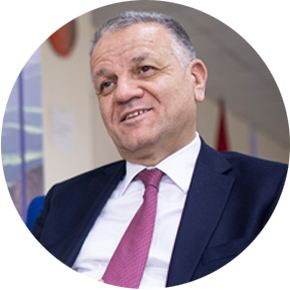Mediamax's interview with OSCE Minsk Group U.S. Co Chair James Warlick
- Mr. Warlick, the co-chairs of OSCE Minsk Group during their press-conference in Yerevan in early April announced that they will return to the region a week later. Why didn't it happen?
- The Co-Chairs are in regular contact with the sides to advance our goals: ensure strict adherence to the ceasefire, start a negotiation on a comprehensive settlement, and implement measures to reduce the risk of future violence. We are prepared to return to the region whenever the sides deem necessary.
- Azerbaijan disseminated letter at the UN General Assembly and Security Council Azerbaijan dated April 14, 2016, where official Baku tried unilaterally denounce May 12, 1994 trilateral ceasefire agreement signed between Azerbaijan, Nagorno-Karabakh and Armenia. Co-chairs have repeatedly called on the parties to strictly abide to the 1994 ceasefire agreement. Why didn't you condemn such provocative move by Azerbaijan?
- The Co-Chairs emphasized at the OSCE the validity of the 1994 ceasefire agreement. The sides have since provided reassurance that they acknowledge and respect the validity of the 1994 agreement.
- What measure have the co-chairs taken so far to address negative consequences of large-scale offensive by Azerbaijan and to create conditions for the negotiations?
- The Co-Chairs have publicly called for the sides to cease using violence and to enter into an immediate negotiation on a settlement. Together with the start of negotiations, we are working to implement measures that will reduce the risk of violence. These processes must take place concurrently. There can be no preconditions for negotiations or for the implementation of measures to reduce violence along the Line of Contact and Armenia-Azerbaijan border.
- Mr. Warlick, it is obvious that after 4-day war the situation is entirely different now and it’s unreasonable for Armenia to resume peace talks with Azerbaijan without security guarantees. What or who is the main obstacle to put in place investigation mechanism for violations of the cease-fire? And why didn't you put more efforts towards that? Why the co-chairs don’t force the parties to accept this proposal?
- We are working with the sides on measures to reduce the risk of violence, including an investigation mechanism. These measures have and will continue to be a priority for the Co-Chairs, but ultimately we cannot force the sides to accept our proposals. The sides must find the political will to take steps that simultaneously advance a negotiated settlement and strengthen the ceasefire.
- Former U.S. OSCE Minsk Group Co-Chair Matthew Bryza criticized U.S for “no interest” in NK issue in his article in Washington Post. How will you comment it?
- The United States is firmly committed to mediating a comprehensive settlement that will bring peace and prosperity to the region. During the Nuclear Security Summit in Washington, Vice President Biden and Secretary Kerry each held meetings with President Sargsyan and President Aliyev to discuss a way forward in peace talks.
Since the outbreak of violence in early April, we have been engaging the sides at senior levels to ensure the ceasefire holds and bring the sides to the negotiating table. As a co-chair country, we will continue to work closely with Russia and France to achieve a peaceful resolution.
Yekaterina Poghosyan talked to James Warlick


























Comments
Dear visitors, You can place your opinion on the material using your Facebook account. Please, be polite and follow our simple rules: you are not allowed to make off - topic comments, place advertisements, use abusive and filthy language. The editorial staff reserves the right to moderate and delete comments in case of breach of the rules.